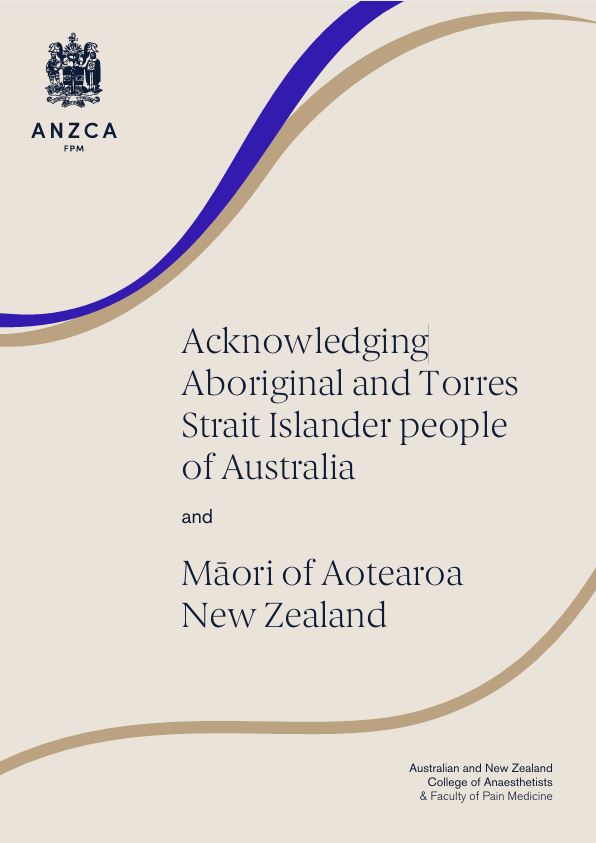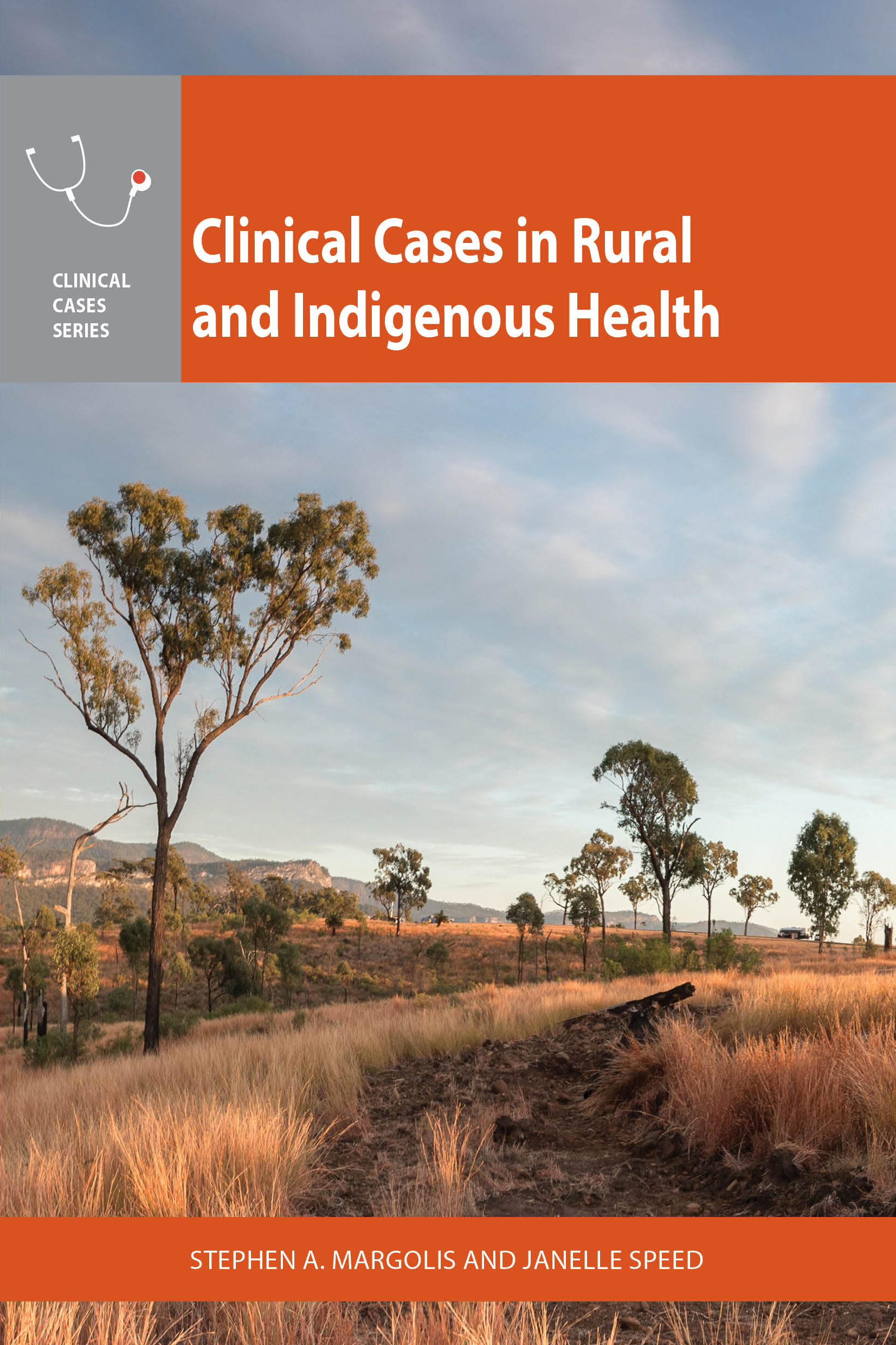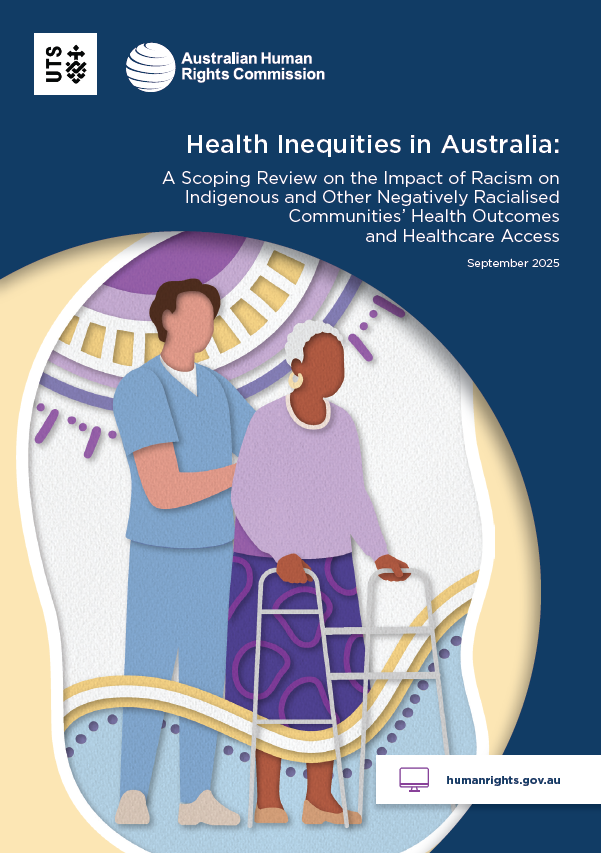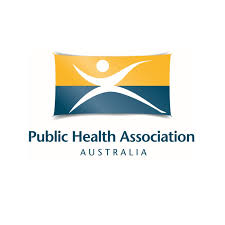
How CPD can support you to provide culturally safe practice Leader & Manager, Professional, Health Advocate
 Aboriginal and Torres Strait Islander people should be aware that the resources within this guide may contain images, voices, or names of deceased persons.
Aboriginal and Torres Strait Islander people should be aware that the resources within this guide may contain images, voices, or names of deceased persons.
Guide index
 Library > Library guides > Professional development hub > CPD for clinical support roles
Library > Library guides > Professional development hub > CPD for clinical support roles
Key areas to consider in planning your CPD include:
Practice evaluation (category 1)
 The college welcomes your feedback regarding any potential omissions, misrepresentations, or inaccuracies regarding First Nations peoples, as well as suggestions for additional resources and topics for CPD on cultural safety.
The college welcomes your feedback regarding any potential omissions, misrepresentations, or inaccuracies regarding First Nations peoples, as well as suggestions for additional resources and topics for CPD on cultural safety.
Learn@ANZCA (formerly Networks) is the college's learning management system.
 Note: Some resources located in Learn@ANZCA require that you first register before accessing.
Note: Some resources located in Learn@ANZCA require that you first register before accessing.




 INNOVATE Reconciliation Action Plan (RAP): January 2023 – January 2025
by
INNOVATE Reconciliation Action Plan (RAP): January 2023 – January 2025
by
 Acknowledging Aboriginal and Torres Strait Islander people of Australia and Māori of Aotearoa New Zealand
by
This guide is to provide ANZCA staff and members with information on using respectful and inclusive language and terminology and recognising the Aboriginal and Torres Strait Islander people as the Traditional Custodians of Country at official college meetings and events in Australia and ngā iwi Māori as the Tangata Whenua of Aotearoa.
Acknowledging Aboriginal and Torres Strait Islander people of Australia and Māori of Aotearoa New Zealand
by
This guide is to provide ANZCA staff and members with information on using respectful and inclusive language and terminology and recognising the Aboriginal and Torres Strait Islander people as the Traditional Custodians of Country at official college meetings and events in Australia and ngā iwi Māori as the Tangata Whenua of Aotearoa.
 Unconscious Bias Toolkit
by
The following toolkit, developed by the Gender Equity Sub-Committee, provides an introduction to unconscious bias. It explains how unconscious bias influences the care our patients receive and the professional endeavours of our members. It also provides strategies and resources to identify and mitigate the effects of unconscious bias.
Unconscious Bias Toolkit
by
The following toolkit, developed by the Gender Equity Sub-Committee, provides an introduction to unconscious bias. It explains how unconscious bias influences the care our patients receive and the professional endeavours of our members. It also provides strategies and resources to identify and mitigate the effects of unconscious bias.
 (Burda-burda Balayi) Health Professionals and Indigenous Health: Working at the Interface
by
Indigenous voices and perspectives on how to provide positive outcomes in Aboriginal and Torres Strait Islander healthcare. Burda-burda Balayi Health Professionals and Indigenous Health: Working at the Interface presents a strengths-based focus to help students and practitioners build their understanding of self and others in professional practice to ensure better health outcomes for Aboriginal and Torres Strait Islander peoples. The text includes Indigenous and non-Indigenous contexts of history, society and culture, and topics include cultural safety, truth telling, colonialism and shared futures. This book critically examines dominant Western health frameworks that essentialises Aboriginal and Torres Strait Islander cultures and health. By providing historical and social context and covering issues affecting public health policy and primary health practice, it aims to diminish conscious bias and racism. With a strong emphasis on research-based Indigenous voices and perspectives, this book provides a culturally safe framework for you to understand the importance of treating Aboriginal and Torres Strait Islander peoples effectively and the knowledge needed to do so.
(Burda-burda Balayi) Health Professionals and Indigenous Health: Working at the Interface
by
Indigenous voices and perspectives on how to provide positive outcomes in Aboriginal and Torres Strait Islander healthcare. Burda-burda Balayi Health Professionals and Indigenous Health: Working at the Interface presents a strengths-based focus to help students and practitioners build their understanding of self and others in professional practice to ensure better health outcomes for Aboriginal and Torres Strait Islander peoples. The text includes Indigenous and non-Indigenous contexts of history, society and culture, and topics include cultural safety, truth telling, colonialism and shared futures. This book critically examines dominant Western health frameworks that essentialises Aboriginal and Torres Strait Islander cultures and health. By providing historical and social context and covering issues affecting public health policy and primary health practice, it aims to diminish conscious bias and racism. With a strong emphasis on research-based Indigenous voices and perspectives, this book provides a culturally safe framework for you to understand the importance of treating Aboriginal and Torres Strait Islander peoples effectively and the knowledge needed to do so.
 Clinical Cases in Rural and Indigenous Health
by
This book focusses attention on the challenges presented when providing clinical care in rural Australia. The cases are set across a broad range of locations covering much of the breadth and depth of the rural Australian experience. Each case is in a different location, where the logistical challenges are presented in detail to help the reader immerse themselves in the environment. The topics span the clinical problems seen in rural environments, from both the common and the less common yet cannot be missed categories.
In addition, there are a series of cases that focus specifically on Aboriginal health. Here, the reader is guided to expand their understanding of how to best and most effectively utilise their clinical acumen in a meaningful way when helping Aboriginal people. The working relationships with Aboriginal Health Workers (AHW) is also explored in some detail.
Clinical Cases in Rural and Indigenous Health
by
This book focusses attention on the challenges presented when providing clinical care in rural Australia. The cases are set across a broad range of locations covering much of the breadth and depth of the rural Australian experience. Each case is in a different location, where the logistical challenges are presented in detail to help the reader immerse themselves in the environment. The topics span the clinical problems seen in rural environments, from both the common and the less common yet cannot be missed categories.
In addition, there are a series of cases that focus specifically on Aboriginal health. Here, the reader is guided to expand their understanding of how to best and most effectively utilise their clinical acumen in a meaningful way when helping Aboriginal people. The working relationships with Aboriginal Health Workers (AHW) is also explored in some detail.
 Health Inequities in Australia: A Scoping Review on the Impact of Racism on Indigenous and Other Negatively Racialised Communities’ Health Outcomes and Healthcare Access
by
Commissioned by the Australian Human Rights Commission, this scoping review investigates how racism affects health outcomes and access to healthcare for Aboriginal and Torres Strait Islander Peoples and other negatively racialised communities. It provides evidence-based recommendations to support the National Anti-Racism Framework and drive systemic reform and is also an education piece for practitioners in the health sector.
Health Inequities in Australia: A Scoping Review on the Impact of Racism on Indigenous and Other Negatively Racialised Communities’ Health Outcomes and Healthcare Access
by
Commissioned by the Australian Human Rights Commission, this scoping review investigates how racism affects health outcomes and access to healthcare for Aboriginal and Torres Strait Islander Peoples and other negatively racialised communities. It provides evidence-based recommendations to support the National Anti-Racism Framework and drive systemic reform and is also an education piece for practitioners in the health sector.
 INNOVATE Reconciliation Action Plan (RAP): January 2023 – January 2025
by
INNOVATE Reconciliation Action Plan (RAP): January 2023 – January 2025
by





 2022 Australian Reconciliation Barometer
by
2022 Australian Reconciliation Barometer
by
 Aboriginal Cultural Engagement Self Assessment Tool
by
NSW Health is committed to improving the health and wellbeing of Aboriginal people.
The engagement tool has been designed to assist NSW Health organisations in moving towards a health system where cultural differences and strengths are recognised and responded to in the governance, management and delivery of health services. It will support health services to assess whether there has been a measured approach towards the delivery of culturally safe and accessible health services for Aboriginal patients and clients.
Aboriginal Cultural Engagement Self Assessment Tool
by
NSW Health is committed to improving the health and wellbeing of Aboriginal people.
The engagement tool has been designed to assist NSW Health organisations in moving towards a health system where cultural differences and strengths are recognised and responded to in the governance, management and delivery of health services. It will support health services to assess whether there has been a measured approach towards the delivery of culturally safe and accessible health services for Aboriginal patients and clients.
 An Aboriginal Cultural Safety Framework for New South Wales Hospitals
by
Globally, there is a wide range of culture-based frameworks used to reduce health disparities. While this has resulted in a diverse research environment, empirical measures of the effectiveness of many of these approaches are scarce. Increasingly, public health policies are incorporating cultural safety approaches to reorientate health systems towards providing more equitable care to people from marginalised communities. However, the conceptual ambiguity of the term ‘cultural safety’ requires a more systematic examination of its meaning. Further, the complexity and lack of empirical measures of cultural safety necessitate the development of valid and reliable measures based on patient perspectives. The study presented in this thesis involved a mixed-methods approach using semi-structured interviews and a survey subject to exploratory factor analysis to inform the development of a cultural safety framework. Interviews were conducted at two Australian hospitals located in New South Wales (NSW). A total of 50 staff were interviewed over a two-month period. Participants included health workers from a diverse range of roles, including chief executive officers, executive board members, specialist physicians, nurses, medical students, social workers and administrative and service support staff. During the interviews, participants were asked to describe their understanding and practice of cultural safety. Transcripts were analysed using applied thematic analysis in which several key themes were identified. Overall, interviewees had a modest understanding of cultural safety and provided a range of examples of how they incorporated cultural safety in practice. Some staff appeared unwilling to be culturally responsive or had observed practices resulting in the provision of culturally unsafe care. Aboriginal workers experienced distinct challenges with respect to their own and their patients’ cultural safety, with many interviewees reporting experiencing racism in the workplace. The implementation of cultural safety appeared to be compromised by what clinicians could do within the structural restrictions of the system. The conflict between governance structures and the agency of individual staff members was identified as a significant barrier impeding the implementation of health policies that seek to enhance patient cultural safety. For the quantitative arm of the study, Aboriginal and/or Torres Strait Islander patients attending NSW hospitals were invited to participate in a survey designed to measure cultural safety from the patient perspective. Using targeted recruitment strategies, participants were selected from two tertiary hospitals. Opportunistic recruitment was also undertaken to enlist patients attending NSW hospitals outside of the target sites. In total, 316 surveys were analysed using exploratory factor analysis, which showed adequate internal and external consistency of domains. Overall, it was found that the survey provides a robust measurement of cultural safety. In addition to exploratory analysis, a cultural safety score was produced for each hospital site. Results from the qualitative survey questions reveal that the support of family and Aboriginal staff is important in determining culturally safe experiences. Both the qualitative and quantitative findings were used in the development of a cultural safety framework for NSW hospitals. This framework may be a valuable tool for measuring and guiding cultural safety initiatives in Australian hospitals.
An Aboriginal Cultural Safety Framework for New South Wales Hospitals
by
Globally, there is a wide range of culture-based frameworks used to reduce health disparities. While this has resulted in a diverse research environment, empirical measures of the effectiveness of many of these approaches are scarce. Increasingly, public health policies are incorporating cultural safety approaches to reorientate health systems towards providing more equitable care to people from marginalised communities. However, the conceptual ambiguity of the term ‘cultural safety’ requires a more systematic examination of its meaning. Further, the complexity and lack of empirical measures of cultural safety necessitate the development of valid and reliable measures based on patient perspectives. The study presented in this thesis involved a mixed-methods approach using semi-structured interviews and a survey subject to exploratory factor analysis to inform the development of a cultural safety framework. Interviews were conducted at two Australian hospitals located in New South Wales (NSW). A total of 50 staff were interviewed over a two-month period. Participants included health workers from a diverse range of roles, including chief executive officers, executive board members, specialist physicians, nurses, medical students, social workers and administrative and service support staff. During the interviews, participants were asked to describe their understanding and practice of cultural safety. Transcripts were analysed using applied thematic analysis in which several key themes were identified. Overall, interviewees had a modest understanding of cultural safety and provided a range of examples of how they incorporated cultural safety in practice. Some staff appeared unwilling to be culturally responsive or had observed practices resulting in the provision of culturally unsafe care. Aboriginal workers experienced distinct challenges with respect to their own and their patients’ cultural safety, with many interviewees reporting experiencing racism in the workplace. The implementation of cultural safety appeared to be compromised by what clinicians could do within the structural restrictions of the system. The conflict between governance structures and the agency of individual staff members was identified as a significant barrier impeding the implementation of health policies that seek to enhance patient cultural safety. For the quantitative arm of the study, Aboriginal and/or Torres Strait Islander patients attending NSW hospitals were invited to participate in a survey designed to measure cultural safety from the patient perspective. Using targeted recruitment strategies, participants were selected from two tertiary hospitals. Opportunistic recruitment was also undertaken to enlist patients attending NSW hospitals outside of the target sites. In total, 316 surveys were analysed using exploratory factor analysis, which showed adequate internal and external consistency of domains. Overall, it was found that the survey provides a robust measurement of cultural safety. In addition to exploratory analysis, a cultural safety score was produced for each hospital site. Results from the qualitative survey questions reveal that the support of family and Aboriginal staff is important in determining culturally safe experiences. Both the qualitative and quantitative findings were used in the development of a cultural safety framework for NSW hospitals. This framework may be a valuable tool for measuring and guiding cultural safety initiatives in Australian hospitals.
 Call It Out Racism Register. The First Six Months
by
This report provides a preliminary analysis of the incidents of racism recorded during the first six months of the Call It Out Register, covering the period 21 March 2022 to 20 September 2022. The analysis set out in this report focuses on select issues or areas.
Call It Out Racism Register. The First Six Months
by
This report provides a preliminary analysis of the incidents of racism recorded during the first six months of the Call It Out Register, covering the period 21 March 2022 to 20 September 2022. The analysis set out in this report focuses on select issues or areas.
 Cultural Competence in Australia: A Guide
by
This report, Cultural Competence in Australia: A Guide, explores: • the importance and benefits of developing culturally and linguistically diverse workforces and its link with organisational cultural competence • markers of organisational cultural competence • cultural competence training.
Cultural Competence in Australia: A Guide
by
This report, Cultural Competence in Australia: A Guide, explores: • the importance and benefits of developing culturally and linguistically diverse workforces and its link with organisational cultural competence • markers of organisational cultural competence • cultural competence training.
 Cultural Safety in Health: Professional Practice, Pedagogy and Research
by
Cultural safety seeks to address power and privilege imbalances in institutions and throughout society. It addresses systemic, scientific, and personal racism, which create and sustain health inequalities in neo-colonial societies such as Australia and Aotearoa/New Zealand. This book aims to provide health students, their educators and practicing health professionals with an in-depth understanding of cultural safety and guidance on developing the key skills required to ensure culturally safe and respectful care in diverse health professions.
Cultural Safety in Health: Professional Practice, Pedagogy and Research
by
Cultural safety seeks to address power and privilege imbalances in institutions and throughout society. It addresses systemic, scientific, and personal racism, which create and sustain health inequalities in neo-colonial societies such as Australia and Aotearoa/New Zealand. This book aims to provide health students, their educators and practicing health professionals with an in-depth understanding of cultural safety and guidance on developing the key skills required to ensure culturally safe and respectful care in diverse health professions.
 Cultural Safety within Vocational Medical Training. Report of Te ORA and the Council of Medical Colleges
by
The CMC in partnership with Te ORA commissioned this report to look at actions medical colleges are taking to support health equity, and to seek feedback on how Māori fellows and trainees experience vocational medical training. The report provides a knowledge base to support the evolution of vocational medical training towards cultural safety.
Cultural Safety within Vocational Medical Training. Report of Te ORA and the Council of Medical Colleges
by
The CMC in partnership with Te ORA commissioned this report to look at actions medical colleges are taking to support health equity, and to seek feedback on how Māori fellows and trainees experience vocational medical training. The report provides a knowledge base to support the evolution of vocational medical training towards cultural safety.
 Deficit Discourse and Strengths-based Approaches: Changing the Narrative of Aboriginal and Torres Strait Islander Health and Wellbeing
by
This report explores strengths-based approaches to shifting the deficit narrative in the Australian aboriginal and Torres Strait Islander health sector. Studies, including a companion report to this one entitled Deficit Discourse and Indigenous Health: How Narrative Framings of Aboriginal and Torres Strait Islander People are Reproduced in Policy, have identified a prevalent ‘deficit discourse’ across Aboriginal and Torres Strait Islander health policy and practice. There is evidence that deficit discourse has an impact on health itself — that it is a barrier to improving health outcomes. Accordingly, there are growing calls for alternative ways to think about and discuss Aboriginal and Torres Strait Islander health and wellbeing. This report builds on Deficit Discourse and Indigenous Health by reviewing and analysing a growing body of work from Australia and overseas that proposes ways to displace deficit discourse in health, or that provides examples of attempts to do so. The most widely accepted approaches to achieving this come under the umbrella term ‘strengths-based’, which seek to move away from the traditional problem-based paradigm and offer a different language and set of solutions to overcoming an issue.
Deficit Discourse and Strengths-based Approaches: Changing the Narrative of Aboriginal and Torres Strait Islander Health and Wellbeing
by
This report explores strengths-based approaches to shifting the deficit narrative in the Australian aboriginal and Torres Strait Islander health sector. Studies, including a companion report to this one entitled Deficit Discourse and Indigenous Health: How Narrative Framings of Aboriginal and Torres Strait Islander People are Reproduced in Policy, have identified a prevalent ‘deficit discourse’ across Aboriginal and Torres Strait Islander health policy and practice. There is evidence that deficit discourse has an impact on health itself — that it is a barrier to improving health outcomes. Accordingly, there are growing calls for alternative ways to think about and discuss Aboriginal and Torres Strait Islander health and wellbeing. This report builds on Deficit Discourse and Indigenous Health by reviewing and analysing a growing body of work from Australia and overseas that proposes ways to displace deficit discourse in health, or that provides examples of attempts to do so. The most widely accepted approaches to achieving this come under the umbrella term ‘strengths-based’, which seek to move away from the traditional problem-based paradigm and offer a different language and set of solutions to overcoming an issue.
 Medical Training Survey 2022
by
The Medical Training Survey (MTS) is proving to be an invaluable diagnostic tool, shining a light on the state of medical training in Australia.
Medical Training Survey 2022
by
The Medical Training Survey (MTS) is proving to be an invaluable diagnostic tool, shining a light on the state of medical training in Australia.
 United Nations Declaration on the Rights of Indigenous Peoples
by
United Nations Declaration on the Rights of Indigenous Peoples
by
 Whakatika : A Survey of Māori Experiences of Racism.
by
This report presents findings of the Whakatika Survey, which aimed to capture the nature, extent and impact of everyday experiences of racism faced by us as Māori in Aotearoa.
Whakatika : A Survey of Māori Experiences of Racism.
by
This report presents findings of the Whakatika Survey, which aimed to capture the nature, extent and impact of everyday experiences of racism faced by us as Māori in Aotearoa.
Quick links
About ANZCA
Copyright © Australian and New Zealand College of Anaesthetists.